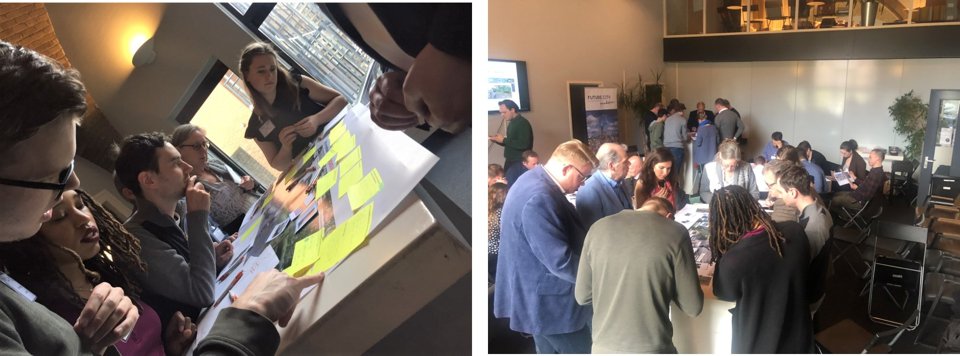It seems that smart cities will help us to address our most urging challenges: traveling faster wherever we want to go, targeted services whenever we need them, better air quality thanks to sophisticated sensors. And many more! Policymakers, companies, and other organizations dream of desirable futures and work on the implementation of technology in our cities to achieve them. However, what do people dream of when thinking about technology and cities? What can of issues would people want to address with technology?
Last April 5th, 2019, we held a workshop session at the Future City Foundation in Amersfoort. Together with one of our project partners, Design Innovation Group, we developed a workshop approach to encourage participants to think about their smart city dreams… and the potential drawbacks these may have (in a “be careful what you wish for” fashion). By surfacing the dreams and associated nightmares of smart city projects, we wanted to deepen into smart city controversies.
The 40 workshop participants came from a very diverse background, allowing us to have a representation from stakeholders of the quadruple helix. Our preliminary analysis indicates that the use of technology in smart cities aims at fulfilling wishes about what we want our society (and its members) to be, do and feel. We dream of using technology to help us feel happy and healthy, adopt more sustainable habits in our energy consumption, or be supportive of others. Smart cities enable citizens and organizations to undergo major transformations towards becoming safer, healthier, or more efficient. However, achieving these goals has drawbacks, and challenges our values in ways that are difficult to anticipate.

Apart from the “usual suspects” that tend to appear in debates about the use of technology in smart cities (i.e. privacy, security), the concerns that participants mentioned more often related to (1) control of technology, (2) justice, (3) autonomy, and what we call (4)“un-bubbling”.
1. Control of technology: who determines what “being in need”, “quality of life”, “sustainability” mean? This black-box and imbalance of power can lead to situations in which people that need help are not part of the system (hence, not being helped).
2. Justice: optimizing urban processes entails evolving towards a more standardized society where being different and not fitting in might be punished; leading to exclusion.
3. Autonomy: the convenience and comfort provided by technology in smart cities might lead to deep changes in how autonomous we are individually and as a collective.
4. “Un-bubbling”: staying in our own bubble can potentially lead to polarization and isolation. Society comprises stakeholders from multiple spheres having diverse perspectives that enrich the city.
Our preliminary thoughts after the workshop? Fulfilling certain wishes entails transformations that put public values under pressure. These tensions lead to controversies. To tackle controversies, stakeholders should debate and anticipate how these transformations occur, and how our interactions with the city and within the city evolve. Encouraging constructive dialogue to anticipate the effect of technology is essential to make an inclusive use of it.
We would like to thank our project partners for the nice collaboration and the workshop participants for their enthusiasm and input!
On May 29th we will have a second workshop that will provide more results. We will keep you posted on our next steps!
If you are interested to know more details about these preliminary results, please send a message to Julieta Matos Castaño (j.matoscastano@utwente.nl) or Anouk Geneen (a.j.p.geenen@utwente.nl).
